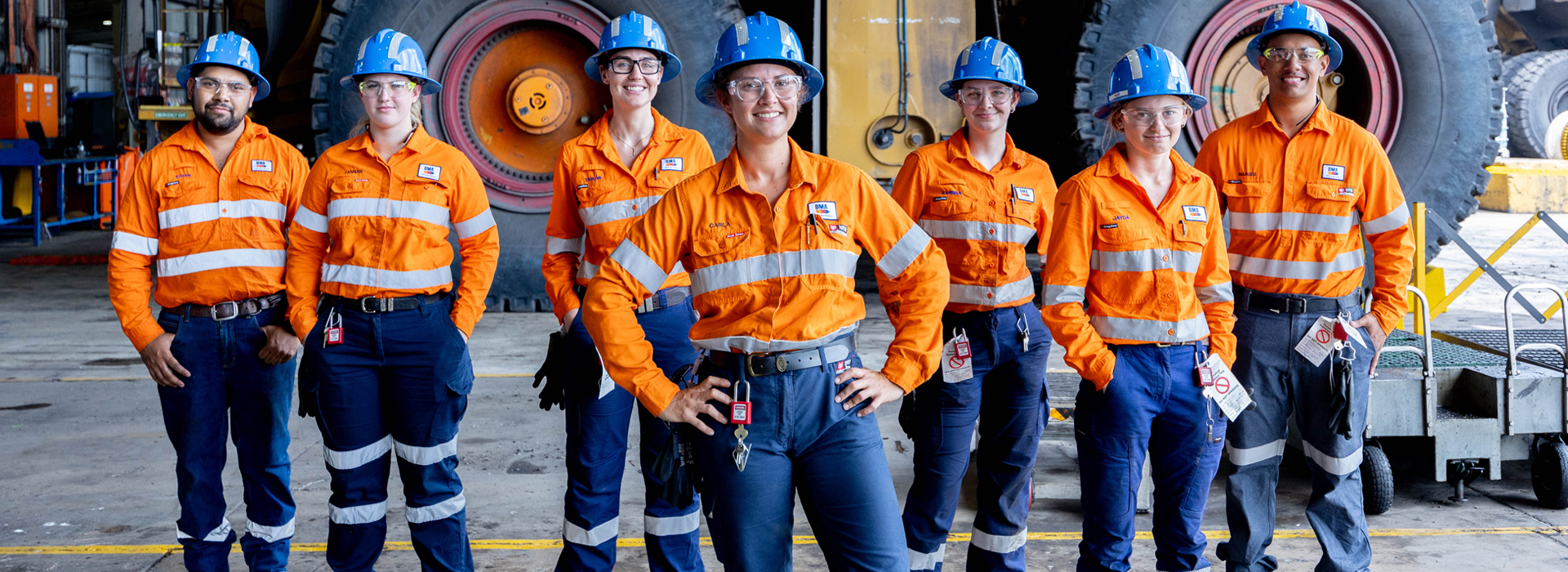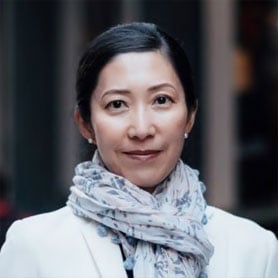Yuki Ghantous: A journey across cultures, sectors and roles
Unafraid to dive into the unknown and test the limits of what’s possible, BHP’s Yuki Ghantous has embraced a journey across cultures, sectors and roles. Yuki shared her principles for leadership and decision making, as well as her thoughts on the business value of listening, with dss+.


Yuki Ghantous
Japan Country President, BHP
Q.
From Japan to Australia and Singapore, from state government to mining, then back to Japan—you’ve been on quite a journey. What have been some highlight?
There have been so many key moments that accelerated my career. The decision to dive into the unknown and move to Australia—everyone thought I was crazy, but I was excited to pursue the possibilities out there. After I moved to Australia, I started my career in the Western Australian State Government, following which, I wanted to test my potential in the private sector, which is how I ended up in the mining sector. Singapore was another step change in terms of culture and experience. It might sound strange, but I was nervous coming back to Japan—I had been away for quite a while, and I was not sure if I would be able fit in to the culture in Japan after having been away for so many years.
These key decisions to explore opportunities abroad were key step changes in my career growth and helped me uncover three key principles that I now follow. Initially, I just followed what I thought was right but then three principles began to emerge which I have continually refined and used as a guide throughout my career.
Q.
What are these three principles that guide you?
Principle one is that there are no boundaries to what you can do and what you can achieve. I often see people tend to put a limit or bias on themselves. They think, ‘I cannot do this because I’m this, or because I have children, or because I’m not an engineer.’ It may be difficult to force yourself to think you can do anything, but it makes a difference if you start from that space.
Next, focus on the things you can control. There are many things you can’t control—for example, what other people do or think. When you make a decision and then focus on what you can control, it becomes a lot easier to identify the problems you can actually do something about. If you stay focused on what you can control, over time your sphere of control will expand.
Finally, it’s important to stay curious and creative. Engage people—finding out why a person thinks the way they do. You may be pleasantly surprised to learn from a new perspective. Being curious and willing to listen has helped me broaden my perspective.
I also apply these three principles when I help guide my team members. It’s amazing to see them grow. As a leader, when I see people taking courage to progress to the next step in their careers, I find it absolutely rewarding.
“There are no boundaries to what you can do and what you can achieve… It may be difficult to force yourself to think you can do anything, but it makes a difference if you start from that space.”
– Yuki Ghantous, Japan Country President, BHP
Q.
You have a unique role in mining, as leader for BHP customer and partner relationships in Japan. What does that look like in a commodity-based business?
My position combines a strong commercial element and deep stakeholder management accountabilities. It’s a very dynamic role. Japan is a key market for BHP, and our stakeholders include customers, suppliers and joint venture partners. Even commodities have customers that goes beyond just transactional relationships. We want to listen to the voice of the customers, understand their requirements, and create value together.
It’s easy to have one-sided conversations about how good our product or company is, but starting with listening and understanding the voice of our customers changes the nature of the conversation and relationship. It becomes a dialogue around ‘How can we work with you so your business will be successful?’ That way, we can develop a mutually beneficial relationship with our customers. Having that customer centric approach and trust takes the commodity business to a different level.
“It’s easy to have one-sided conversations about how good our product or company is, but starting with listening and understanding the voice of our customers changes the nature of the conversation.”
– Yuki Ghantous, Japan Country President, BHP
Q.
BHP is known for its commitment to decarbonisation. Going forward, what actions must organisations take to operate in a more sustainable and resilient way, and how can a team like yours support that?
For any organisation, the external environment continues to be more volatile and uncertain—COVID, regional instabilities, geopolitics, etc. What worked in the past may no longer work, or we may face new challenges which we may not have answers for. We recognise that some of these challenges such as decarbonisation are huge—too big for one company to address. We need to work together with customers, joint venture partners and other stakeholders to address such challenges.
The answer goes back to deeper engagement with all stakeholders. It’s critical to understand what they’re facing and the implications, then we can build solutions together. This capability requires active listening, problem solving and partnership skills.
Q.
What has working in different cultures taught you?
Moving across cultures has been a massive learning experience. What you’re comfortable with or the status quo in one culture might not have the same value in a different culture. Starting all over again and re-building your identity in new cultures will bring you many new insights, perspectives and empathy.
“Over time, my focus has shifted from individual tasks and targets to the workplace culture and environment I create.”
–Yuki Ghantous, Japan Country President, BHP
Q.
How has your leadership style evolved?
Over time, my focus has shifted from individual tasks and targets to the culture and environment I create in the workplace. It takes a lot of effort to create and manage a culture. I think it is a leader’s responsibility to make sure that we have a culture where everyone feels engaged, enabled and safe to speak up. It starts from understanding how everyone has a different context and different challenges.
That’s how I learnt that an employee with two young children was contemplating quitting or go part time. She didn’t want to give up her career, but she was faced with the challenges of limited availability of childcare support in Japan and her husband’s equally demanding career. I worked with her to create a two-year development plan for her that accommodated her family’s changing dynamics. We changed the work design and leveraged a flexible working arrangement fully with a clear set of KPIs, so she could work from home 100% at the beginning. She managed to balance her family requirements and career through these arrangements. She is now back to a more regular work routine and she has recently stepped up to take on a higher level role that is in line with her career goals. We can create a workplace that works for people with diverse backgrounds or a specific family context. Modifying work design or providing flexible work arrangements are some of the examples that companies and leaders can utilise.
Q.
This series is all about leaders making a difference. Is there one initiative that stands out?
I’m especially proud of how our social value activities are making a difference in local communities in Japan. When I came back to Japan for my current role, I realised gender diversity in Japan’s corporate sector hadn’t progressed as much as what I’d seen in Australia and Singapore.
Many companies recognise that gender diversity is important, but despite their efforts, progression is very slow. BHP has been on our own inclusion and diversity journey, and I thought we could start by sharing our story to help others embark on their own path forward. When we began our activities in 2021, we were expecting around 20 people to join our launch event, and that would have been okay. In the first year, we had dialogues with over 400 people. We are continuing co-creation and implementation, and participating in events with customers, suppliers and stakeholders, helping other companies kickstart their own journeys.
We’re also broadening the scope of our inclusion and diversity advocacies beyond gender and working with nonprofit organisations to address the broader diversity challenges in the local community in Japan. Our team became more creative and they feel really motivated through these activities. We’re not just working for a company, we’re actually making a difference in the community in which we live. It is in line with BHP’s purpose to ‘Bring people and resources together to build a better world.’ Our social value activities connect our team members to BHP’s purpose and makes them feel very proud of what they do.